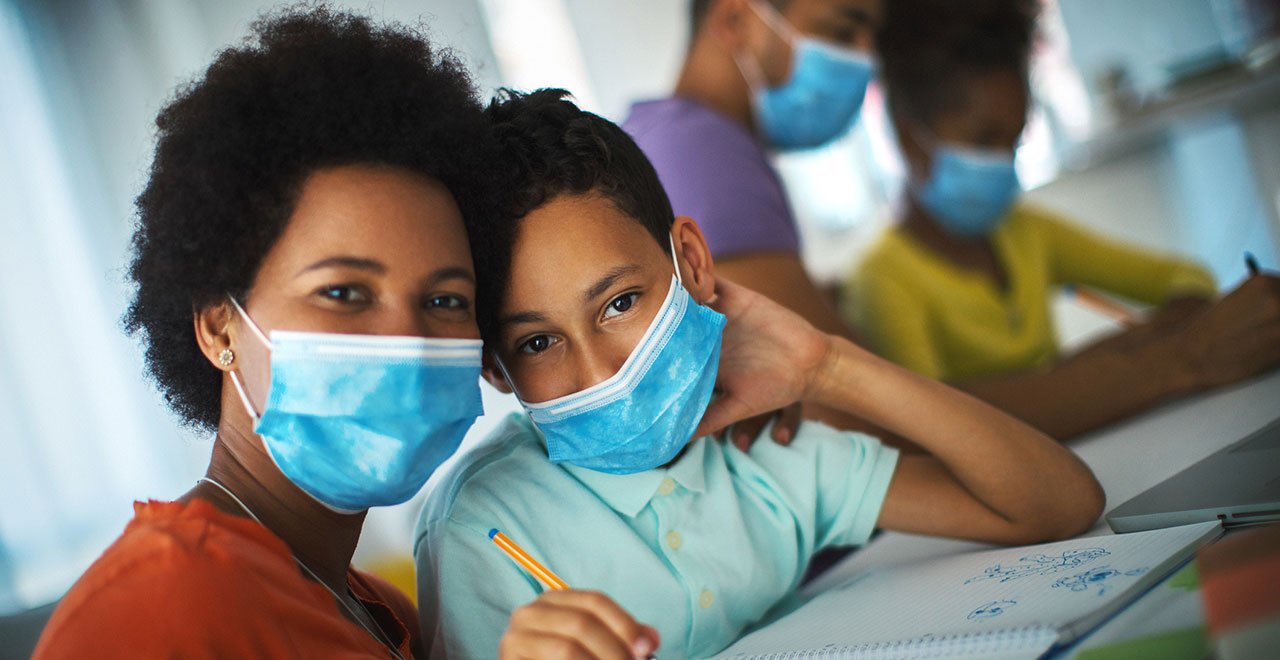The health emergency is making its effects felt more and more on the economy and social life, amplifying the gap between the North and South of the world, widening those fracture lines that call into question a coexistence of solidarity and fraternity.
Even the impact on schools, and more generally on education, has been so dramatic as to push the Secretary of the United Nations to speak of a "generational catastrophe". In April 2020, one and a half billion children and young people stopped going to school, and despite the fact that in many cases teaching continued at a distance through the use of online platforms or radio and television programs, education was not guaranteed in a uniform manner, especially in middle and low-income countries.
A consideration on the topic of education was shared during the meeting "Rethinking the Paradigms of International Cooperation in Education", organized by the Unesco Chair on Education for Human Development and Solidarity among Peoples at Università Cattolica, in collaboration with the Observatory for Education and International Cooperation as part of the initiative "Dialogues of the Unesco Chairs", in collaboration with the Unesco Chair on Education for Human Development and Solidarity among Peoples of the University of Geneva, Unesco Chair Training and Empowering Human Resources for Health Development in Resource-limited Countries of the State University of Brescia.
«International cooperation plays a major role in promoting international solidarity among peoples and in responding to complex challenges in an intimately connected world. However ‒ declares Professor Domenico Simeone, Director of the Unesco Chair at Università Cattolica ‒ it is necessary to rethink the principles that underlie international cooperation, in order to implement a paradigm shift in the way the balances and relationships between the various actors involved are manifested».
«In his call for the foundation of a global educational alliance, the Pope reminds us that it is necessary to find new ways of understanding economy, growth and progress. However, every change requires that at the same time an educational path be built, thanks to which people capable of living in society and for society, willing to put themselves at the service of the community, are formed. This is an education that allows for a broader and deeper understanding of reality, which educates to universal solidarity and a new humanism», Professor Domenico Simeone added.
Professor Abdwljalil Akkari ‒ Dean of the Section of Educational Sciences and Director of the Research Team on the International Dimensions of Education at the University of Geneva and collaborator of international bodies such as UNESCO and the Council of Europe ‒ agrees with Professor Simeone that "this is a time to rethink international cooperation, university and economy. We are in a moment of crisis, but the word means both opportunity and danger in Chinese."
The scholar traced the work of the International Education Agendas, which often took up the intended goals because they were not met. Over the years, there has been a shift from the concepts of education for all in the 1990s to staying in school, including girls. Now agencies are focusing more on measurable competencies. There has been a shift from education for all to content for all.
In some sub-Saharan countries, 40 percent of children are out of school, and even in higher-income countries there is a learning crisis. And often, basic skills are not even learned.
Looking back over the history of international cooperation, we can see that from 1945 to the 1970s, the central theme was decolonization; in the years that followed, new players emerged such as the World Bank, which has a particularly important role, and NGOs that pursue the concept of "small is beautiful." From the 1990s to the present day, there has been further diversification of actors and philanthropic organizations, European Union investments have appeared.
«I am convinced -Akkari said-, that a global, holistic vision is needed to address the problems of immigration, terrorism and now covid. We must rethink the paradigms of international cooperation thinking about the model of society we want and understand who controls the guidelines to be implemented. University will have an important role in empirical research, to ensure a critical look at international organizations and thus suggest new ways of cooperation and create innovation».
Professor Francesco Castelli, Professor of infectious diseases and deputy pro-rector of the University of Brescia, where he also serves as Director of the UNESCO Chair Training and Empowering Human Resources for Health Development in Resource-limited Countries, focused on the theme of health and education of health personnel in Africa, which is too unbalanced in relation to the number of people.
Why is there this shortage? Because of the lack of training, because there are few universities and trained healthcare personnel migrate from rural to urban areas or to another country for safer living conditions, higher pay, less work, etc. This way, poor countries invite the public to invest in health care. In this way, poor countries invest in training and rich countries receive it without paying anything.
Rita Locatelli, researcher for the UNESCO Chair, concluded by stressing that UNESCO Chairs have in common the idea of overcoming the single approach and the need for a transversal dialogue between the various fields: «ew instruments of analysis and social investigation are needed to allow the foundation of a pedagogy of international cooperation, based on the ethics of responsibility and the principle of solidarity. In order to be a promoter of a paradigm shift in relations between the North and the South of the world, international cooperation must necessarily recognize development as a right, not as an act of generosity, but as a social and political dimension of belonging to humanity».




